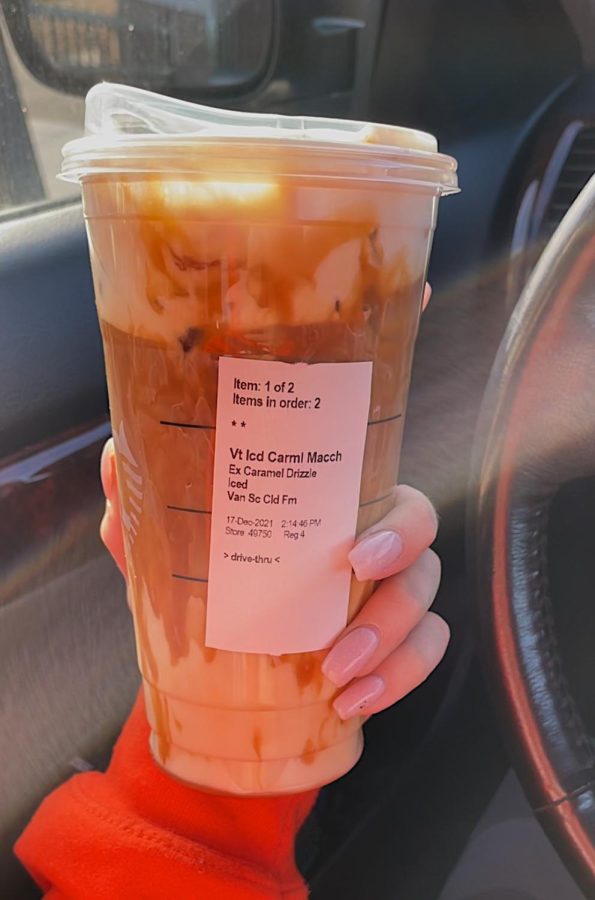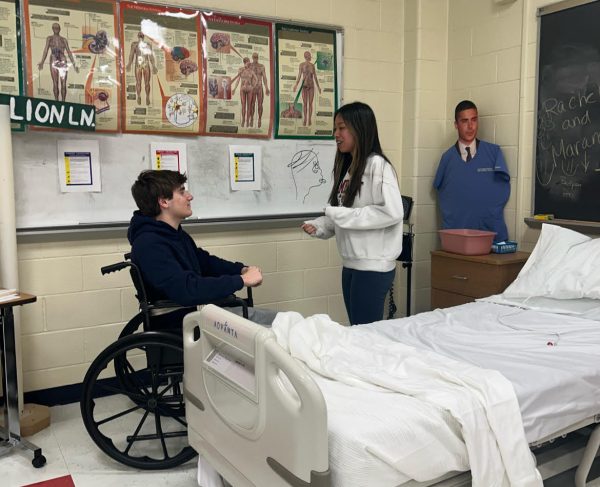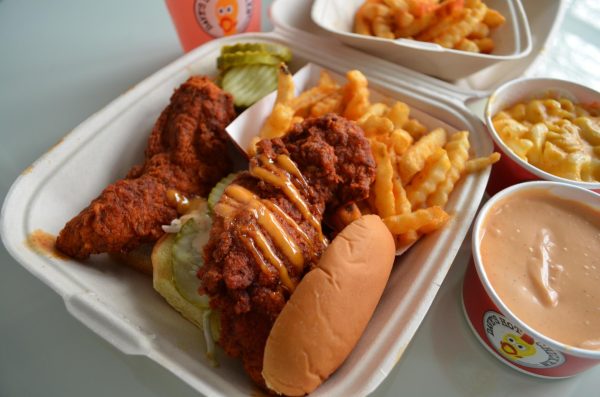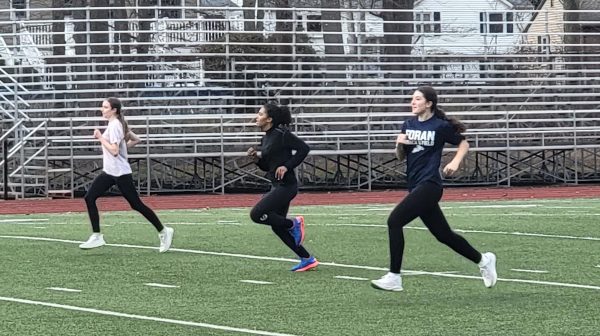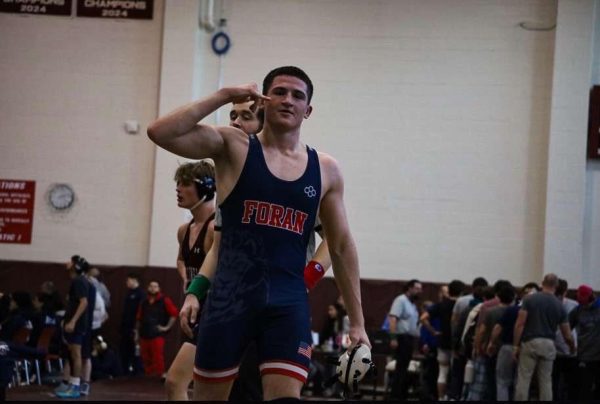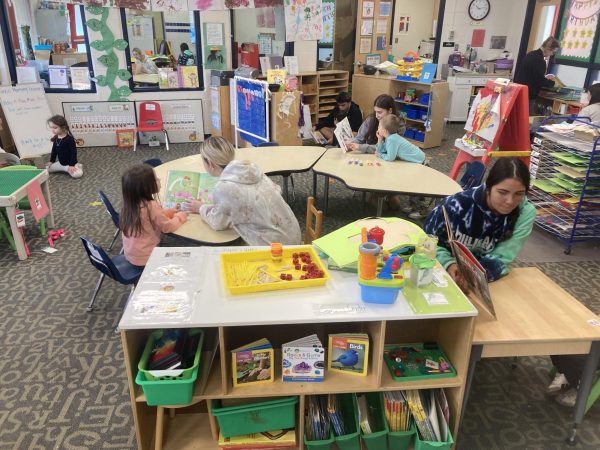Coffee Craze
How Caffeine Addiction is Starting Younger and Younger
Pictured is one of the most viral drinks ordered this year from Starbucks.
Caffeine addiction is becoming normalized in school and in society. Walking to class every morning it’s nearly impossible not to see a student holding a coffee beverage whether it be from Dunkin, Starbucks, or from home. What once seemed designated to adults is being overtaken and capitalized on by a younger generation.
A popular social media trend expanding across platforms in recent years is ordering and reviewing new coffee beverages. Certain trends encourage viewers to try various creations and customize their own beverages with different sugar syrups in hopes of creating the most delicious drink.
Popular corporations such as Starbucks and Dunkin’ are profiting from these trends but at a cost. The majority of increased business is from a much younger audience that watches these videos and wants to try the coffee drinks that influencers are promoting.
Senior and Starbucks barista Tuana Gonul says, “I have seen a concerning amount of children as young as 8 ordering specialized caffeine filled coffee drinks that are trending on social media.”
These trending drinks not only contain caffeine but have high amounts of sugar that are unhealthy for all ages but are especially detrimental to younger kids.
Charli D’Amelio, a famous Tik Toker with over 133 million followers, is one example of social media’s influence on the craze over coffee. After gaining a large following, D’Amelio obtained a partnership with Dunkin’ where she was given her own signature drink on their menu called “The Charli.”
“The Charli” is cold brew coffee with whole milk and 3 pumps of Caramel Swirl. Her newest signature drink released by Dunkin, “The Charli Remix”, is the same drink but with the addition of cold foam and cinnamon sugar on top.
A popular trend following the release of her drinks is to order “The Charli” and review it on video. Because of her young age, primarily young audience, and huge following she greatly contributed towards the increased coffee intake of teenagers as well as young children wanting to try her go to coffee.
Charli cannot be the only one at fault for the uproar in caffeine addiction. There are thousands of influencers just like her that create videos promoting regular coffee intake.
The earlier caffeine intake begins the worse short- and long-term effects are. In highschool, students are finally reaching the age to gain a license, a car, or a job which permits them to drive to Starbucks, Dunkin, or any other coffee distributor regularly. This can negatively affect their health in a series of ways.
Nurse Corey Sarnecky says, “The human brain isn’t fully developed until about age 25. Caffeine is a neuro stimulant that causes added stimulation/irritation that is not needed and will certainly decrease the ability to learn and process information.”
Pre-workout has recently become a more popular option when taking caffeine. Preworkout tends to include ingredients such as Amino acids, beta-alanine, creatine, and artificial sweeteners aside from the caffeine. These other ingredients are designed to boost athletic performance.
Foran wrestler and gym enthusiast James Taylor is a regular user of preworkout, energy drinks, and other performance boosting caffeine supplements. He shares his experiences with caffeine:
“I like to take a scoop of preworkout or drink an energy drink before I workout to enhance my performance. Sometimes when I’m feeling tired or a little lazy, it’s just the push I need to still get a nice workout in. I don’t really see much of a downside personally but that isn’t to say there is not one. I have however noticed that I have built somewhat of a tolerance to it.”
Like any drug, caffeine usage builds up a tolerance which drives many to end up consuming greater and greater amounts during each intake.
Too much caffeine may cause headaches, anxiety, trouble sleeping, irritability, respiratory issues, chest pain, and thirst.
Health teacher Jeffrey Raucci tells us, “People can certainly become dependent on caffeine from the beneficial effects it has (wakes you up from being a stimulant and increases adrenaline in the body). As it becomes a habit when drinking it in the morning, people become dependent on it and could experience mild withdrawal effects from it (headache, lethargic, easily irritated).”
It is important that we moderate caffeine intake especially among young children in order to prevent addiction at a young age.
Your donation will support the student journalists of Foran High School. Your contribution will allow us to purchase equipment and cover our annual website hosting costs.

Hi! I'm Haley and I’m a senior at Foran. I play for the girls varsity soccer team as well as the girls track team in the Spring. I work at Sundae...

Hello, my name is Eliot Poffenberger and I am a senior at Joseph A. Foran High School. I wrestle for my high school’s team and I work as a food...


